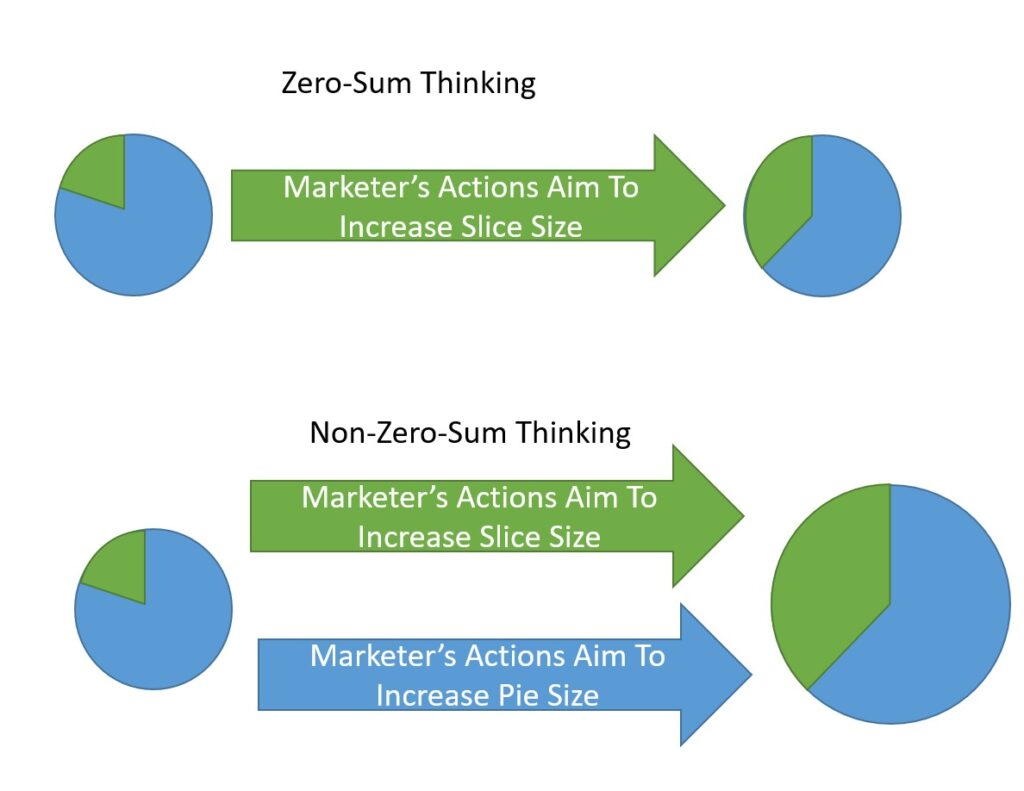Dixit and Nalebuff have great skill in popularizing game theory. Today I will detail a problem that I will call The Trump Fallacy.
Theory And Understanding The World
Their work is full of interesting examples and useful ways of looking at sometimes tricky concepts. They are strong believers in having theory to back up ideas which I appreciate. In their words theory “…distills the essential similarities in apparently dissimilar contexts and enables one to think about them in a unified and therefore simplified manner.” (Dixit and Nalebuff, 2008, page 39). Theory helps you create an idea of what the world is like and so create sensible and coherent ways to deal with it. Without theory even if you have data you merely have anecdotes which may or may not apply to the situation at hand.
The Trump Fallacy And Zero-Sum Thinking
The problem of incoherent ideas brings us to the current U.S. President [written in 2017]. To my mind he seems to epitomize a widespread but erroneous way of thinking that might be called The Trump Fallacy.
“Many people’s intuition about games…..is that each game must have a winner and a loser. …such games of pure conflict are quite rare. Games in economics, where players engage in voluntary trade for mutual benefit, can give outcomes where everyone wins.”
Dixit and Nalebuff, 2008, 146
Many games aren’t the sort where there is a winner and a loser. If one person benefits this typically doesn’t mean someone else must be losing. Often all win, and very often all lose, together. There are numerous examples in public policy where all benefit together. The point is that just because other nations are happy with a deal doesn’t mean that the U.S. is being suckered. This sort of zero-sum thinking is disappointing to see.

Collaboration For Mutual Benefit
It is a shame that Trump didn’t read Dixit and Nalebuff’s excellent work (or independently develop some coherent ideas of his own) before becoming President. Life has many opportunities for collaboration for mutual benefit. The Trump Fallacy may be widespread. Still, I am confident that such mistaken thinking can be overcome.
For more on competitor orientation see here and game theory see here.
Read: Avinash K. Dixit and Barry J. Nalebuff (2008) The Art of Strategy: A Game Theorist’s Guide to Success in Business and Life, W.W.Norton & Company, New York
